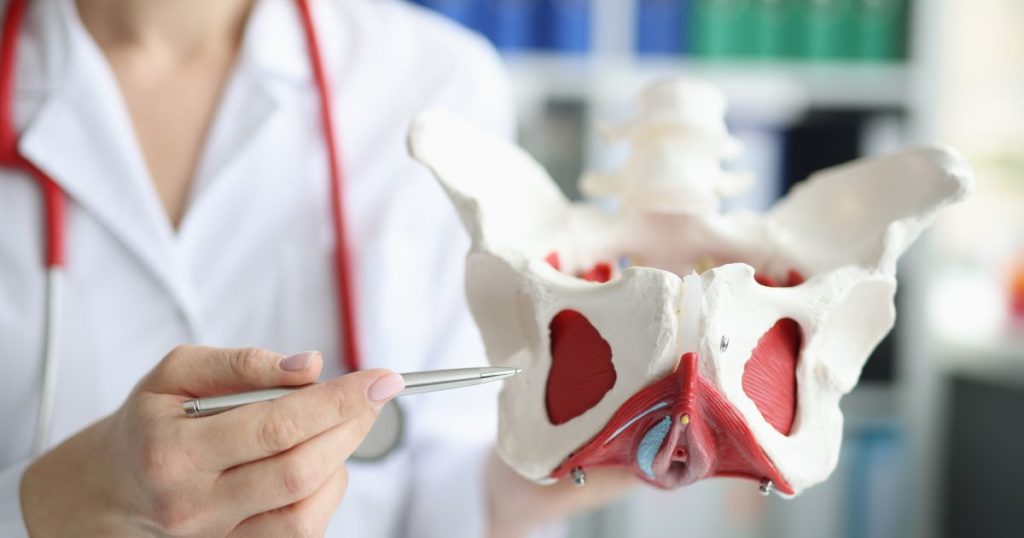Have you ever wondered about your pelvic floor’s role in health and well-being? Are you struggling with pelvic pain, discomfort, or functional issues related to your pelvic region? If so, you might be surprised that Pelvic Floor Physiotherapy could solve your problems.
This article will provide an easy-to-understand overview of pelvic floor physiotherapy, its importance, and how it can benefit many individuals. Let’s dive in!
What is the Pelvic Floor?
Before we discuss the benefits of this physiotherapy, it’s essential to understand what the pelvic floor is and why it is crucial to your overall health. A pelvic floor is a group of muscles spanning the base of the pelvis, supporting the bladder, bowel, and uterus (or prostate) in men.
These muscles play a critical role in various functions, such as:
- Supporting pelvic organs by maintaining their position and preventing prolapse
- Controlling bladder and bowel movements by allowing you to start and stop the flow of urine and feces voluntarily
- Facilitating sexual function by assisting in arousal, orgasm, and ejaculation
Common Issues
Unfortunately, many people experience problems with their muscles here, which can lead to a range of issues, including:
Dysfunction
Dysfunction in the pelvic area occurs when the pelvic floor muscles are either too weak or too tight, resulting in difficulty controlling the bladder or bowels. Causes of dysfunction include pregnancy, childbirth, surgery, aging, and obesity. Some common symptoms include:
- Chronic pelvic pain or discomfort in the region
- Urinary or fecal incontinence
- Constipation or difficulty emptying the bowels
- Painful intercourse

Incontinence
Incontinence is the involuntary loss of bladder or bowel control. There are two main types:
- Stress incontinence: Leakage of urine during activities that pressure the bladder, such as coughing, sneezing, or exercising.
- Urge incontinence: The urge to urinate, followed by an involuntary loss of urine.
Pelvic Organ Prolapse
Prolapse occurs when the muscles weaken, causing one or more pelvic organs to descend and bulge into the vagina. It can result in discomfort, pain, and bladder or bowel function difficulty.
Sexual Dysfunction
A weak or tight pelvic floor can lead to sexual dysfunction in both men and women, including erectile dysfunction, painful intercourse, and difficulty achieving orgasm.
How This Physiotherapy Helps
It is a specialized form of physical therapy that focuses on assessing, diagnosing, and treating issues related to the pelvic floor muscles. Here’s how it can help:
Assessment and Diagnosis
A skilled physiotherapist will begin by conducting a thorough assessment of your pelvic floor muscles, including a physical examination, an internal exam, a review of your medical history, and diagnostic tools such as ultrasound or biofeedback.
Treatment Techniques
After diagnosis, your physiotherapist will develop a personalized pelvic floor health treatment plan that may include one or more of the following techniques:
- Pelvic floor exercises: Specific exercises designed to strengthen or relax the pelvic floor muscles, depending on the individual’s needs. These exercises may include Kegels, deep squats, or other targeted movements.
- Biofeedback: A non-invasive technique that uses sensors to monitor the activity of the muscles, allowing both the patient and the therapist to visualize the muscle contractions and better understand how to improve their function.

- Manual therapy: It is a hands-on technique, concentrating on soft tissue mobilization, trigger point release, or joint mobilization to address muscle imbalances, tightness, or pain in the pelvic region.
Benefits of The Therapy
It can offer a wide range of benefits, including:
- Improved bladder and bowel control: Strengthening and relaxing the muscles can help prevent and manage incontinence, allowing individuals to regain control over their bladder and bowel function, improving bowel health.
- Prevention and treatment of prolapse: By strengthening the muscles, physiotherapy can help prevent pelvic organ prolapse and reduce the severity of existing prolapses.
- Enhanced sexual function: Addressing pelvic floor dysfunction can lead to improved sexual performance, increased pleasure, and reduced pain during intercourse.
- Reduction of pelvic pain and discomfort: This physiotherapy can help alleviate acute pain and discomfort associated with pelvic floor dysfunction or other related conditions.
The Role of Pelvic Health Physiotherapy in Pregnancy and Postpartum Care
This physiotherapy is especially beneficial for pregnant and postpartum women, as pregnancy, childbirth, and postpartum recovery can strain pelvic floor muscles significantly. Some pregnancy-related pelvic floor issues include incontinence, pelvic pain, and pelvic organ prolapse.
This type of physiotherapy during pregnancy can help prevent or alleviate these issues by strengthening the muscles and addressing any imbalances or tightness. After childbirth, pelvic floor physiotherapy can assist in the recovery process by helping to restore the strength and function of the muscles, reducing the risk of long-term complications.

Who Can Benefit from this kind of Physiotherapy?
While it is often associated with women’s health, it is essential to note that men can also benefit from this specialized treatment. In addition to pregnant and postpartum women, the following individuals may find pelvic floor physiotherapy helpful:
Women
Aging and menopause-related issues: As women age and go through menopause, hormonal changes can weaken the pelvic floor muscles, increasing the risk of incontinence and prolapse.
Men
- Prostate health: Men with prostate surgery or experiencing prostate-related issues may benefit from it to help restore bladder control and improve sexual function.
- Post-surgery rehabilitation: Men with abdominal or pelvic surgery, such as hernia repair, may find it helpful for regaining strength and function.
Athletes
- Prevention of injury: Athletes, particularly those involved in high-impact sports, may benefit from this to help prevent injuries related to pelvic floor muscle imbalances or weakness.
- Performance enhancement: A strong, well-functioning pelvic floor can contribute to overall athletic performance, particularly in sports that require core strength and stability.
Finding the Right Pelvic Floor Physiotherapist
When looking for an expert physiotherapist, choosing a practitioner specializing in this treatment is essential. Here are some qualifications to look for:
A degree in physiotherapy or physical therapy
- Additional training or certification in pelvic floor physiotherapy
- Experience in treating a wide range of pelvic floor issues
- A good reputation and positive reviews from previous clients
During your first appointment, you can expect a thorough pelvic floor assessment, including a physical examination and a discussion of your medical history. Your physiotherapist will create a personalized treatment plan tailored to your needs and goals.

In Summary
This type of physiotherapy is an essential treatment option for individuals experiencing pain, discomfort, or functional issues related to their pelvic floor muscles.
By addressing the underlying causes of these problems, pelvic floor physiotherapy can help improve bladder and bowel control, prevent and treat prolapse, enhance sexual function, and reduce pain and discomfort.
Whether pregnant, postpartum, an athlete, or simply looking to improve your overall health and well-being, pelvic floor physiotherapy can provide many benefits. Feel free to consult a qualified pelvic floor physiotherapist to address your concerns and start your journey toward a healthier pelvic floor.




